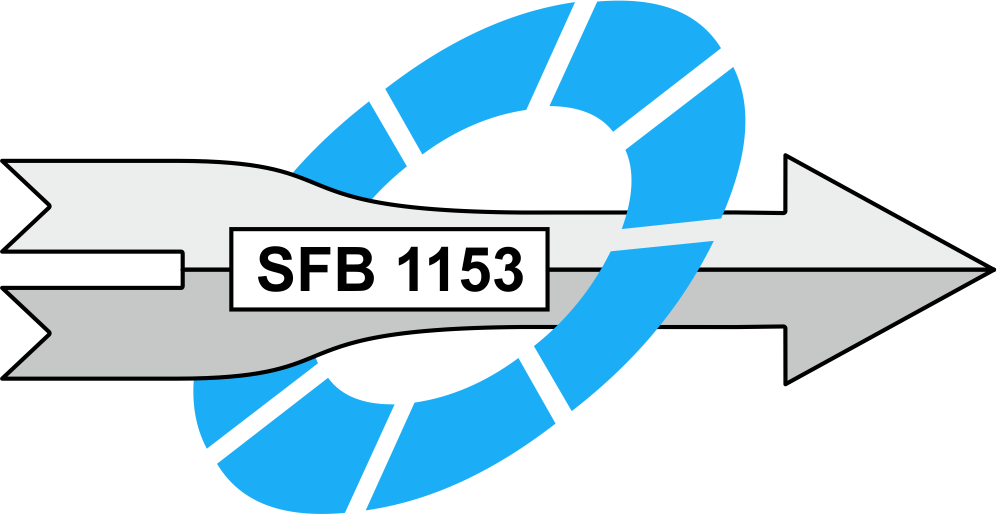Abstract of the dissertation by Susanne Thürer
Lightweight construction concepts cannot always be realised by using mono-materials, but often only by using specific materials at the right location. The use of composite materials allows to combine different materials to unite material properties and thus, meet performance-adjusted requirement profiles.
Novel process chains for the production of new types of hybrid solid components are being researched within the Collaborative Research Centre 1153. This work is assigned to the production of semi-finished products and for this purpose, an innovative co-extrusion process should be developed, which enables the production of hybrid hollow profiles as semi-finished products for the demonstrator component "bearing bushing". Within the lateral angular co-extrusion process developed, a steel tube is to be fed laterally into the process as a reinforcing element and sheathed with the light metal aluminium as matrix material.
The developed co-extrusion process was analysed with regard to the process forces present. It could be demonstrated that the novel process can be employed successfully for different combinations of aluminium alloys and steels. The hybrid semi-finished products were characterised with regard to the coaxial arrangement of the joining partners in the material, the concentricity in the corresponding cross sections and the mechanical properties of the joint zone.
Abstract of the dissertation by Rüdiger Beermann
The geometrical characterization of forge-hot workpieces with temperature of up to 1000 °C based on optical triangulation methods is challenging, but offers the potential of an early error detection and a monitoring of the manufacturing process. Due to the heat input of the high-temperature measuring objects into the surrounding air, an inhomogeneous refractive index field is bulding up around the measuring object. This optical inhomogeneity leads to a deviation of the measuring light from the postulated rectilinear path. In consequence the accuracy of optical geometry measurements is influenced.
The objective of this thesis was the development and calibration of a structured light sensor based on an affine stereo camera pair to perform undisturbed geometry measurements of high temperature components. The developed sensor concept with low pressure measuring cell allows the realization of the measuring task without heat-induced light deflection effect for small measuring volumes. Forthcoming work will include the geometrical and thermal documentation of volume shrinkage processes of hybrid workpieces in order to further optimise the manufacturing process.








